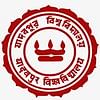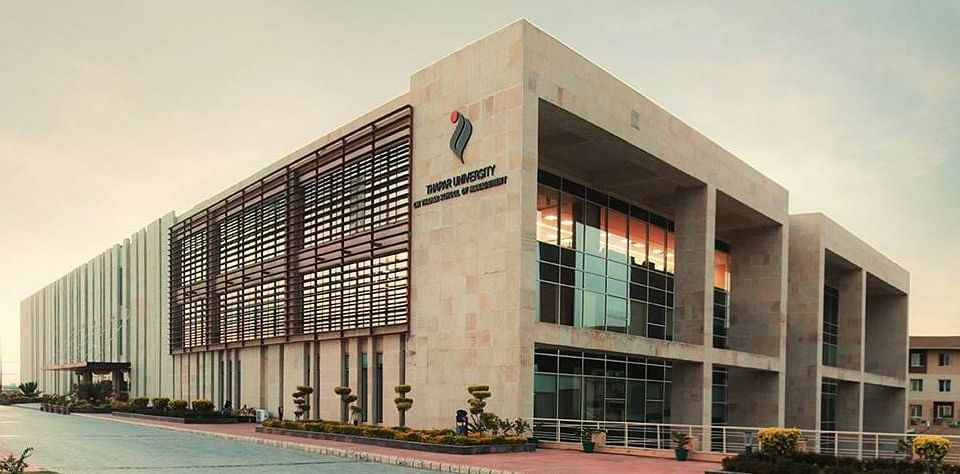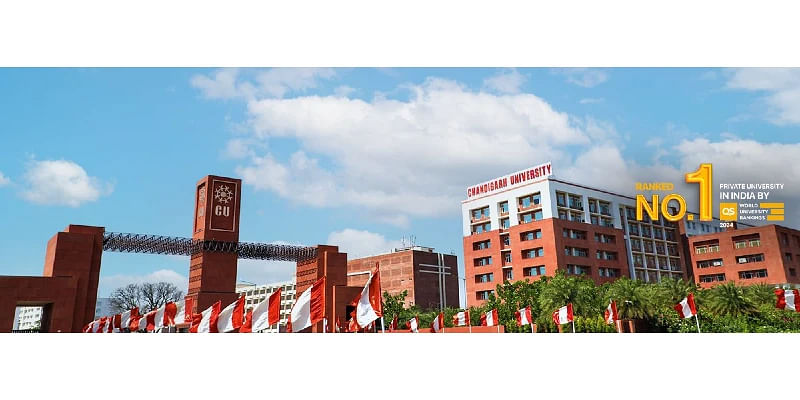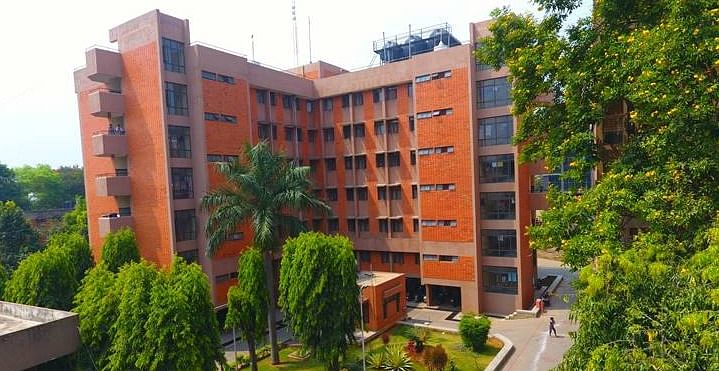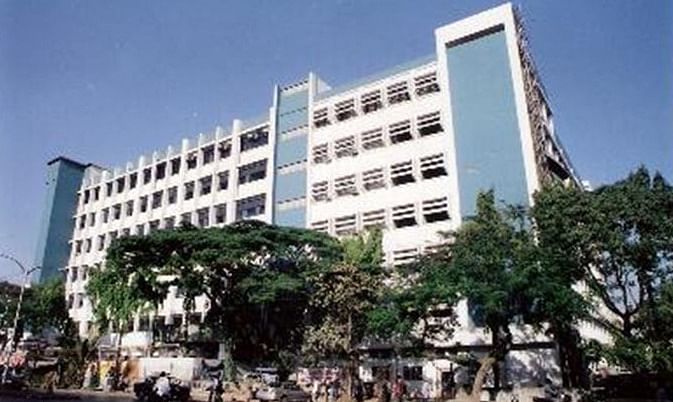BE Chemical Engineering Syllabus and Subjects

Chemical Engineering syllabus spans a period of four years and is strategically divided into eight semesters. The BE Chemical Engineering syllabus equips students with both theoretical and practical skills. Chemical engineering subjects comprises core and elective courses. Core topics within the chemical engineering syllabus include chemical process engineering, thermodynamics, mass transfer, chemical reactions, etc. Elective courses range from process control to biochemical engineering, and more.
The BE chemical engineering syllabus prepares students for roles in industries like chemical manufacturing, petrochemicals, and pharmaceuticals. BE Chemical Engineering graduates have many job opportunities in both the public and private sectors. Chemical engineer, senior process engineer, and project engineer are a few of the job titles.
Table of Contents
- BE Chemical Engineering Subjects
- Semester Wise BE Chemical Engineering Syllabus
- College Wise BE Chemical Engineering Syllabus
BE Chemical Engineering Subjects
The Chemical Engineering subjects covers core and practicals such as Mathematics, Chemical Process, Chemistry, Environmental Engineering, etc., as well as electives that are offered in the 3rd and 4th year of the syllabus. The Chemical Engineering subjects list is sorted into the following three groups:
BE Chemical Engineering Core Subjects
The core courses of chemical engineering subjects cover important theoretical topics necessary for the course. Here are some of these core subjects.
- Chemistry
- Mathematics
- Engineering Chemistry
- Computer Programming & Utilization
- Maths
- Manufacturing Process
- Numerical Analysis
- Mass Transfer
- Energy Resources
- Process Engineering and Plant Design
- Environmental Engineering
BE Chemical Engineering Elective Subjects
In Chemical engineering subjects, electives encompass a variety of topics and abilities that are required for the course. Some of these elective subjects are listed below.
- Fundamental Chemical Engineering Calculations & Stoichiometry
- Introductory Course for French
- Cyber Security
- Fundamentals of Chemical Engineering Unit Operations
- Energy Audit and Conservation
- Computational Fluid Dynamics
- Nanotechnology
- Computational Fluid Dynamics
BE Chemical Engineering Lab Subjects
Learning through lab sessions is crucial for gaining practical skills necessary in the chemical engineering industry. Here are some of the lab subjects in chemical engineering:
- Chemistry Lab
- Physics Lab
- Chemical Engineering Lab
- Solid and Structures Lab
- Thermo Fluid Lab
- Fluid and Praticals Mechanic Lab
- Chemical Process Lab
BE Chemical Engineering Subjects In Detail
The topics covered by the subjects in the Chemical Engineering BE course are listed in the table below.
|
BE Chemical Engineering Subjects |
Topics |
|
Thermo Fluids |
Hydrostatics, Principles of Fluid Motion, Pipe Flow, Boundary Layer, Properties of Pure Substances, First Law of Thermodynamics. |
|
Process Dynamics and Control |
Dynamic behavior of simple processes, Design of single-loop feedback control systems, Stability Analysis of feed-back systems. |
|
Material and Energy Balances |
Behaviour of Gas and Liquid Mixtures, Material Balance Calculations, Energy Balance Calculations. |
|
Chemical Reaction Engineering |
Heterogeneous Reactions, Fluid – Fluid Reaction, Catalysis and Adsorption, Reaction and Diffusion in porous catalyst. |
|
Chemical Process Industries |
Pulp and Paper, Sugar and Starch, Oils and Fats, Soaps and Detergents, Chlor-alkali Industries, Nitrogen Industries. |
|
Chemical Engineering Thermodynaimcs |
Thermodynamic Properties of Fluids and Equations of State, Vapour-Liquid Equilibria and Solution Thermodynamics. |
Semester Wise BE Chemical Engineering Syllabus
The BE Chemical Engineering syllabus provides students with a comprehensive education that includes converting raw materials into useful chemical products, as well as utilizing engineering principles and problem-solving techniques. Students will study fundamental subjects such as math, physics, and chemistry in the first year, and choose electives related to both general and discipline-specific topics from the third year. Here is a breakdown chemical engineering subjects semester wise.
BE Chemical Engineering 1st Year Syllabus
Chemical Engineering subjects first year is detailed in the table below:
|
Semester I |
Semester II |
|
Mathematics – I |
Mathematics – II |
|
Physics |
Thermodynamics – I |
|
Chemistry – I |
Electrical & Electronics Engineering |
|
Communication skills/ English |
Material & Energy Balance Computations |
|
Engineering Graphics |
Computers Lab |
|
Physics Lab |
Chemistry Lab |
BE Chemical Engineering 1st Year Practicals
In the following list are practicals offered in Chemical Engineering 1st year syllabus:
- Chemistry
- Physics
- Process flow diagram
BE Chemical Engineering 2nd Year Syllabus
The table below contains chemical engineering 3rd semester subjects and fourth semester subjects:
|
Semester III |
Semester IV |
|
Engineering and Solid Mechanics |
Heat Transfer |
|
Chemistry - II |
Mass Transfer-I |
|
Transport Phenomena |
Fluid Mechanics |
|
Biology |
Materials Science |
|
Thermodynamics-II |
Numerical Methods in Chemical Engineering |
|
Transport Phenomena |
Environmental sciences |
BE Chemical Engineering 2nd Year Practicals
In the following list are practicals offered in chemical engineering 3rd semester syllabus and 4th semester syllabus are:
- Organic Chemistry and Unit Processes
- FFO
- Engineering Materials
BE Chemical Engineering 3rd Year Syllabus
The table below contains Chemical Engineering syllabus for fifth semester and sixth semester:
| Semester V | Semester VI |
|
Chemical Reaction Engineering- I |
Chemical Reaction Engineering-II |
|
Mass Transfer -II |
Process Technology & Economics |
|
Core Elective- I |
Core Elective- II |
|
Open Elective- I |
Process Control |
|
Chemical Engineering Lab- I |
Chemical Engineering Lab- II |
|
Particle & Fluid Particle Processing |
Open Elective- II |
BE Chemical Engineering 3rd Year Practicals
The list of practicals included in the Chemical Engineering third-year syllabus is as follows:
- Mass Transfer Operation
- Chemical Process Industries
- Process Modelling and Simulation
BE Chemical Engineering 4th Year Syllabus
The Chemical Engineering syllabus for the seventh and eighth semesters is shown in the table below:
|
Semester VII |
Semester VIII |
|
Core Elective- III |
Summer Industry Internship Project |
|
Design & Simulation Lab |
|
|
Instrumentation & Control Lab |
|
|
Core Elective- IV |
|
|
Open Elective- III |
|
|
Open Elective- IV |
BE Chemical Engineering 4th Year Practicals
Here is a list of practicals available in the Chemical Engineering syllabus for fourth-year students.
- Mass Transfer Operation
- Chemical Process Industries
- Process Modelling and Simulation
Core Elective Subjects
List of core elective subjects are outlined below:
- Water Conservation and Management
- Sustainability Engineering
- Interfacial Engineering
- Nanoscience and Nanotechnology
- Advanced Separation Processes
- Polymer Science and Engineering
- Environmental Pollution and Control
- Renewable Energy
- Optimization Methods
College Wise BE Chemical Engineering Syllabus
The BE Chemical Engineering syllabus PDF can be accessed from the official website of the college offering the program. The B.E. Chemical Engineering syllabus may vary between institutions, however the core courses remain the same across most colleges. The chemical engineering subjects semester wise syllabus is detailed in the following sections.
ICT, Maharashtra B.E Chemical Engineering Syllabus
ICT offers a comprehensive B.E. Chemical Engineering program that covers the basics in the early semesters and delves into advanced subjects like thermodynamics, reaction engineering, and safety in later stages. The chemical engineering semester wise subjects are detailed in the following tables:
|
Semester I |
Semester II |
|
Applied Chemistry |
Applied Physics |
|
Applied Chemistry Laboratory |
Applied Physics Laboratory |
|
Applied Mathematics - I |
Applied Mathematics - II |
|
Structural Mechanics |
Elements of Mechanical Engineering |
|
Structural Mechanics Laboratory |
Introduction to Chemical Engineering |
|
Electrical Engineering and Electronics |
Material Balance and Energy Balance Calculations |
|
Engineering Graphics and Computer Aided Drafting (CAD) |
Engineering Applications of Digital Computers |
|
English |
|
Semester III |
Semester IV |
|
Fluid Flow |
Chemical Engineering Operations |
|
Heat Transfer |
Industrial Chemistry and Reaction Engineering |
|
Engineering Thermodynamics |
Instrumentation and Process Dynamics |
|
Process Safety |
Chemical Engineering Laboratory - II |
|
Chemical Engineering Laboratory - I |
Community Projects |
|
Semester V |
Semester VI |
|
Chemical Reaction Engineering |
Multiphase Reaction Engineering |
|
Momentum Transfer |
Chemical Process Control |
|
Chemical Engineering Thermodynamics |
Material Technology |
|
Chemical Engineering Laboratory - III |
Separation Processes |
|
Process Simulation Laboratory - I |
Heat Transfer Equipment Design |
|
Biochemical Engineering |
Process Simulation Laboratory - II |
|
Chemical Engineering Laboratory - IV |
|
Semester VII |
Semester VIII |
|
Chemical Process Development and Engineering |
Design Project – II |
|
Chemical Project Economics |
Industrial and Organizational Psychology |
|
Environmental Engineering and Chemical Process Safety |
Catalytic Science and Engineering |
|
Chemical Process Equipment Design and drawing |
Statistical Thermodynamics |
|
Refinery Science and Engineering |
Internship |
|
Literature Review (Research Methodology - I) |
|
|
Design and Analysis of Experiments (Research Methodology - II) |
|
|
Design Project – I |
|
Annamalai University B.E Chemical Engineering Syllabus
Annamalai University provides a B.E. Chemical Engineering course with a strong foundation in the initial semesters, followed by specialized electives and practical project work in later stages. The chemical engineering subjects semester wise is provided below:
|
Semester I |
Semester II |
|
Physics |
English |
|
Mathematics - I |
Chemistry |
|
Basic Electrical Engineering |
Programming for Problem Solving |
|
Physics Laboratory |
Mathematics – II |
|
Electrical Engineering Laboratory |
Communication Skills and Language Laboratory |
|
Engineering Graphics and Design |
Chemistry Laboratory |
|
Semester III |
Semester IV |
|
Engineering Mathematics III |
Numerical Methods |
|
Environmental Studies |
Material Science |
|
Engineering Mechanics |
Fluid Mechanics |
|
Chemistry for Chemical Engineers |
Chemical Engineering Thermodynamics - I |
|
Transport Phenomena |
Heat Transfer |
|
Chemical Process Calculations |
Mass Transfer – I |
|
Organic & Physical Chemistry Laboratory |
Fluid Mechanics Laboratory |
|
Technical Analysis Laboratory |
Heat Transfer Laboratory |
|
Semester V |
Semester VI |
|
Chemical Reaction Engineering - I |
Chemical Reaction Engineering – II |
|
Mass Transfer – II |
Process Instrumentation Dynamics & Control |
|
Particle & Fluid-particle processing |
Chemical Reaction Engineering Laboratory |
|
Chemical Engineering Thermodynamics II |
Process Control Laboratory |
|
Particle & Fluid particle processing Laboratory |
Professional Elective - Any Three |
|
Mass Transfer Laboratory |
Open Elective |
|
Chemical Engineering Thermodynamics Laboratory |
|
|
Professional Elective - Any Three |
|
|
Open Elective |
|
Semester VII |
Semester VIII |
|
Engineering Ethics |
Open Elective - Any Two |
|
Process Technology & Economics |
Project Work and Viva-voce |
|
Professional Elective - Any Two |
|
|
Chemical Plant Equipment Design & Drawing Laboratory |
|
|
Open Elective |
|
Professional Elective |
|
|
|
|
Open Elective |
|
|
|
BE Chemical Engineering Course Structure
The course structure for Chemical Engineering subjects consists of lab training, fundamental topics, core subjects, electives, seminars, and practicals, following the CBCS structure recommended by the UGC. Generally, this is the structure for chemical engg syllabus:
- VIII Semesters
- Core Subjects
- Electives
- Practicals
- Internships
- Projects
BE Chemical Engineering Teaching Methodology and Techniques
In chemical engineering subjects, the teaching methodology comprises practical lessons for students, in-depth laboratory product experimentation, and lessons on processing and delivery, to name a few. The following are the methods and approaches used to teach the chemical engineering curriculum:
- Practical & Live Sessions
- Conceptualized Learning
- Guest Lectures, Seminars, and Workshop
- Industrial Visits
- Group Assignment and Discussion
- Project Submission
BE Chemical Engineering Projects
The chemical engineering syllabus projects focus on determining the aptitude of the candidate's skills acquired over the years. By the end of their final year, students are required to finish their engineering projects. There are various popular topics for BE Chemical Engineering projects, including:
- Utilization Of Sludge Gas
- Detergent Powder From Paddy Husk
- Refining Of Used Lube Oils
- Caffeine From Waste Tea And Coffee
- Solar Pump
BE Chemical Engineering Reference Books
Chemical Engineering subjects require an in-depth understanding of engineering concepts. Following are the reference books for the Chemical Engineering syllabus:
|
Subjects |
Books |
Authors |
|
Numerical Methods |
Numerical Methods With Chemical Engineering Applications |
Kevin Dorfman |
|
Mathematics |
Linear Mathematics Models in Chemical Engineering |
Martin Aksel Hjortso, |
|
Design |
Chemical Engineering Design |
R.K.Sinnott |
|
Chemical Engineering |
FE Chemical Practice Problems |
Michael R. Lindeburg |
Top BE Chemical Engineering Colleges
Top Engineering Entrance Exams
BE Chemical Engineering Fee Structure
FAQs on BE Chemical Engineering Syllabus and Subjects
Q: What is the B.E. syllabus for chemical engineering?
Q: Is B.E. Chemical Engineering very tough?
Q: Is B.E chemical engineering full of physics and maths?
Q: Can a PCB student do B.E chemical engineering?

